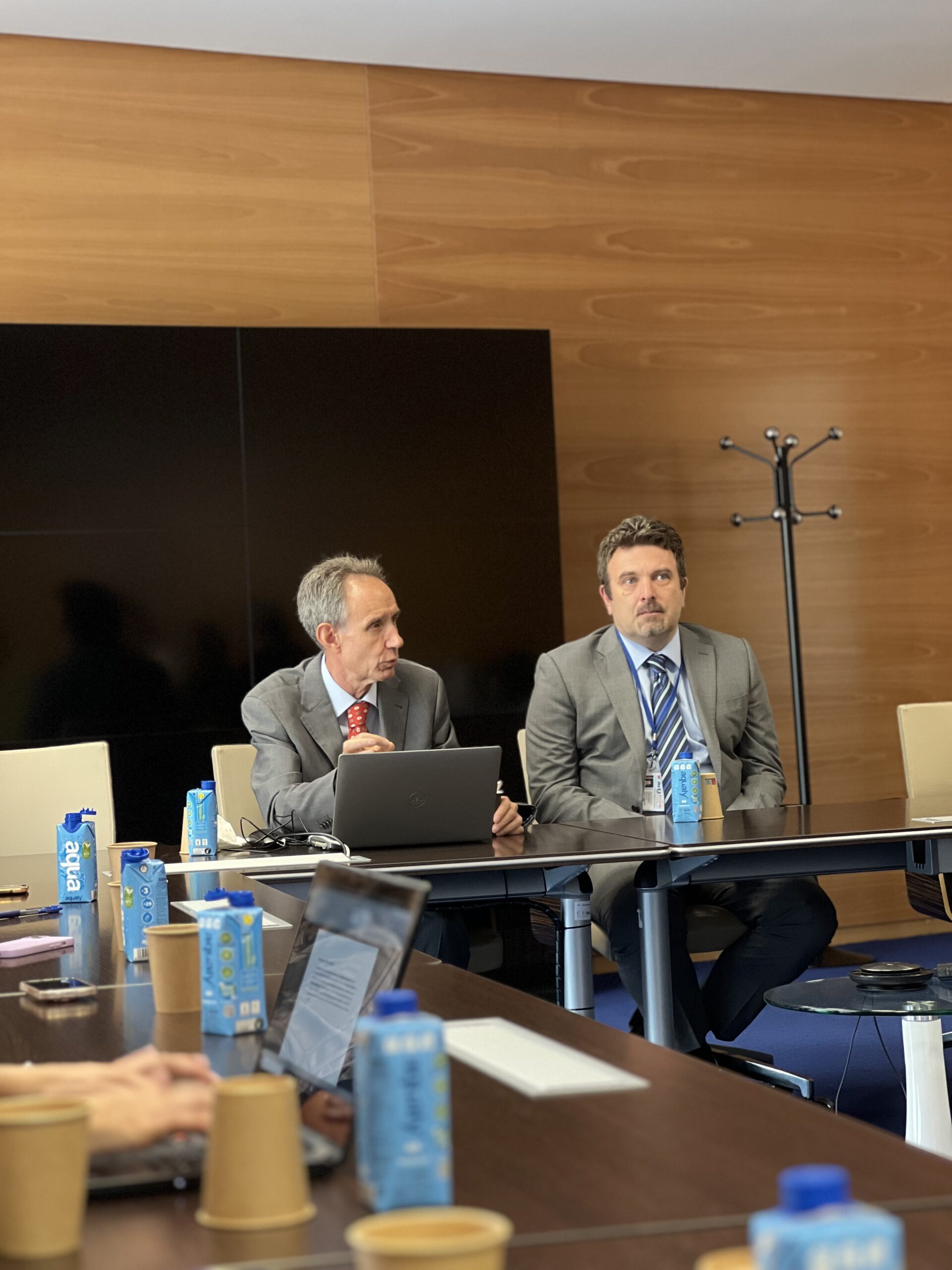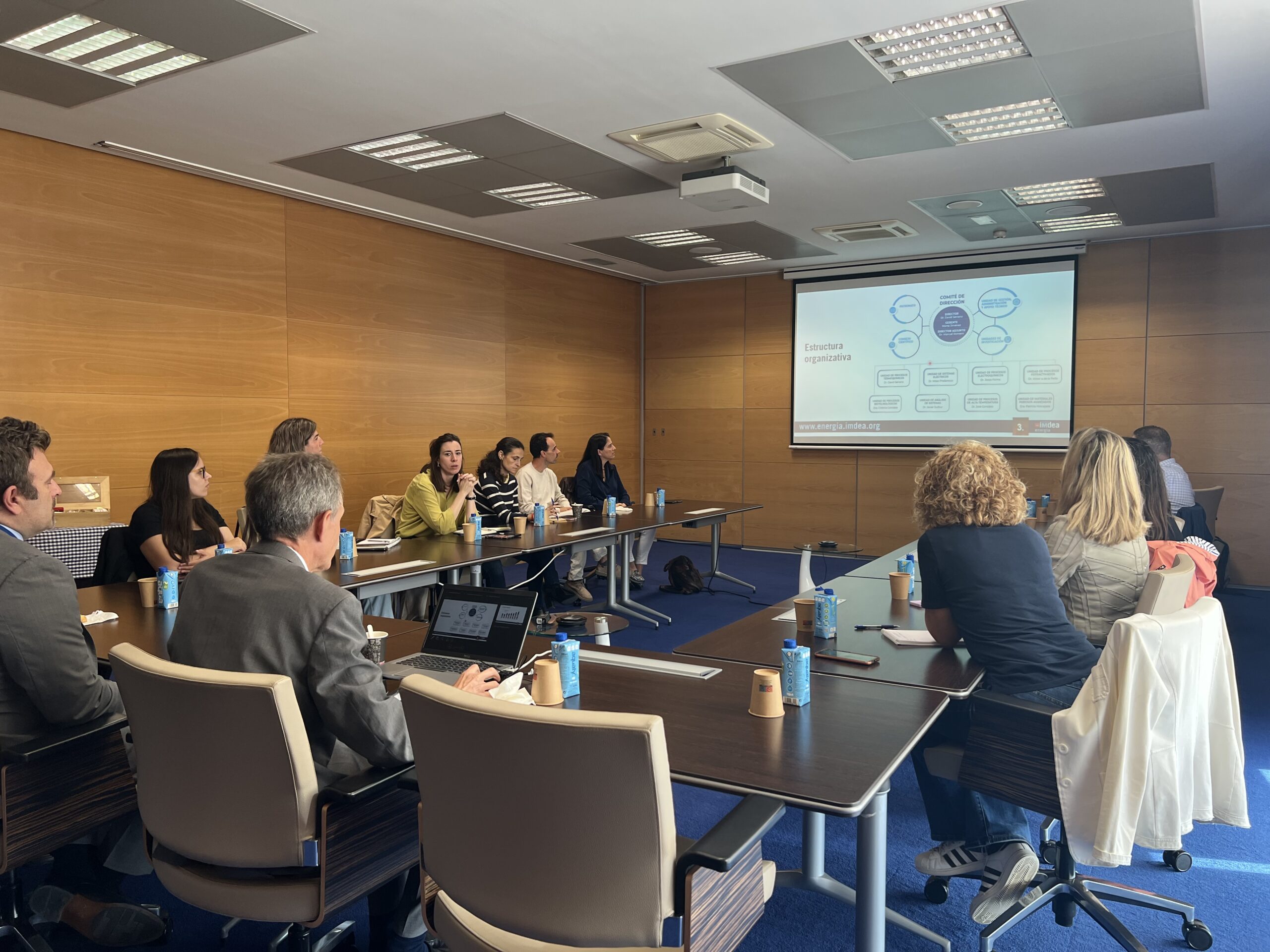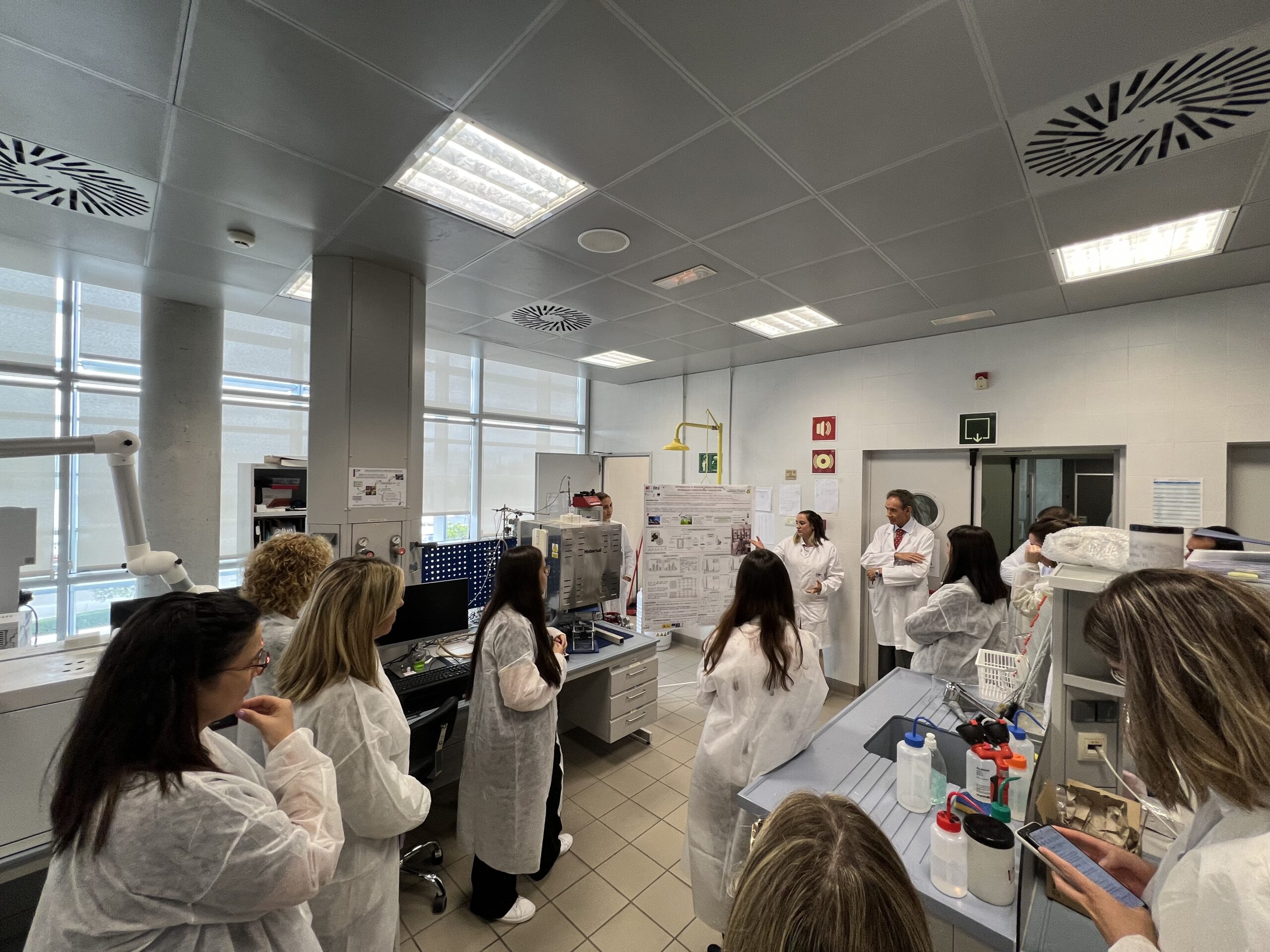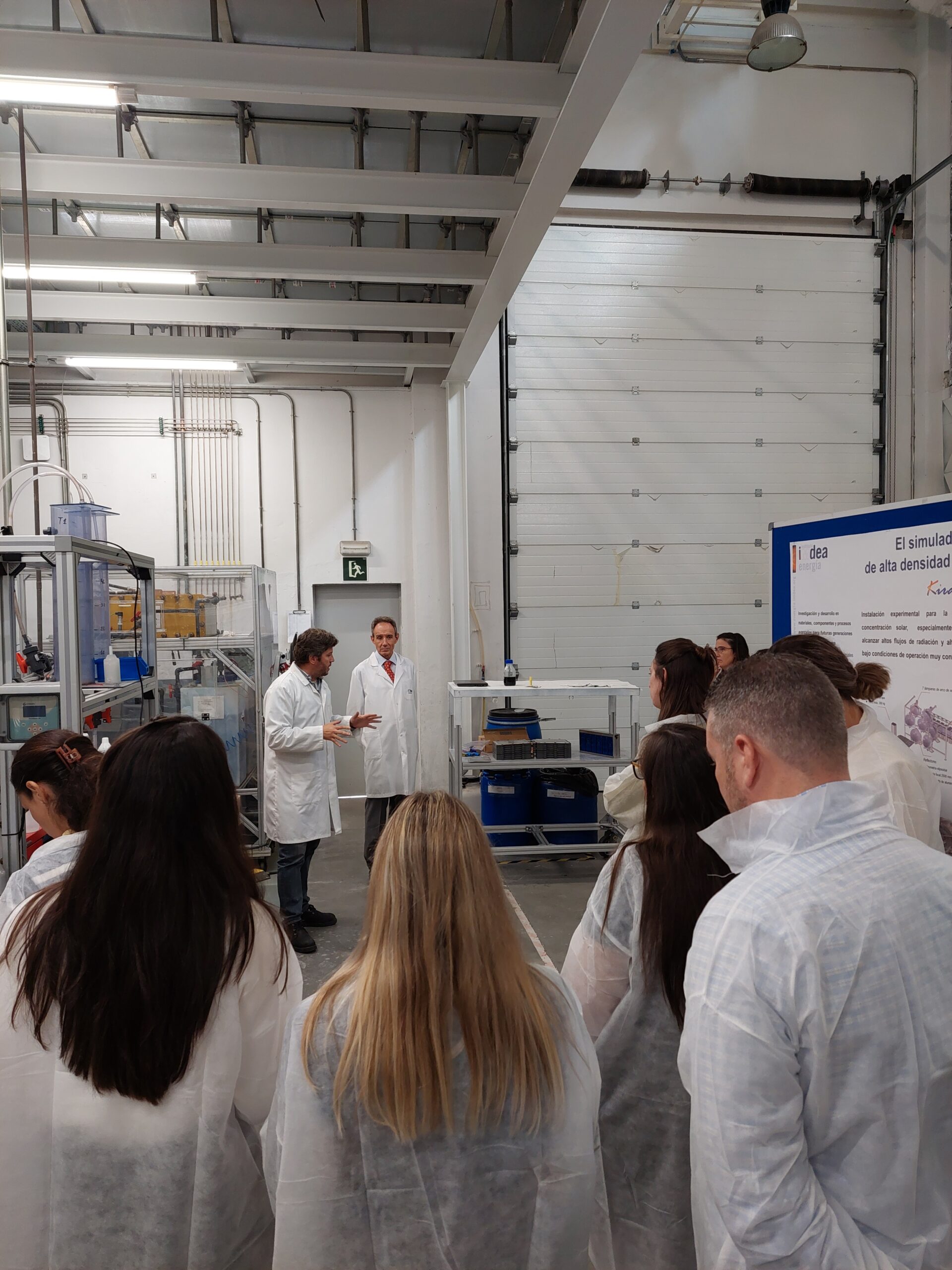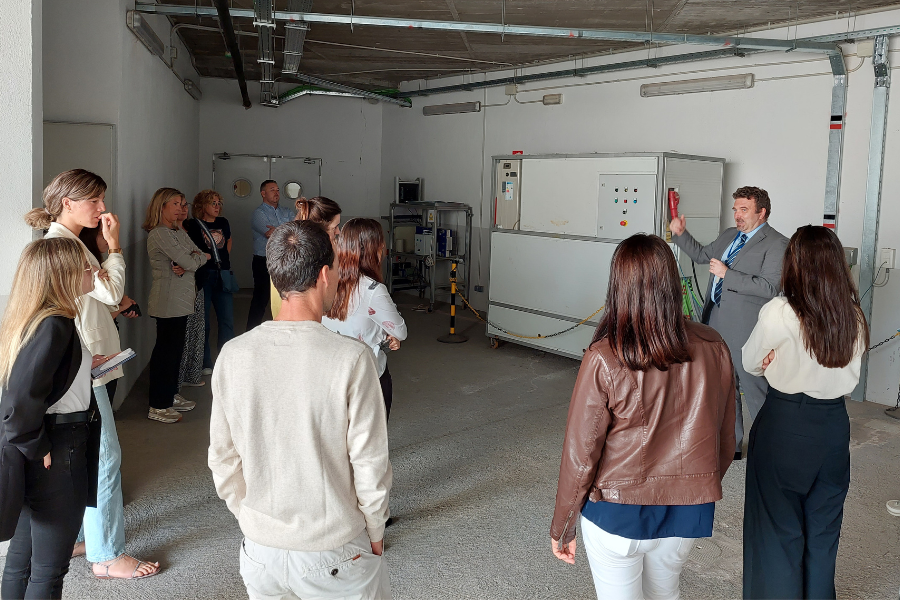Naturgy visita las instalaciones técnicas de IMDEA Energía para cooperar en el desarrollo de tecnologías de almacenamiento energético
On September 18th IMDEA Energía was visited by a team of managers, technicians and experts from the Naturgy Group, together with consultants from Opinno as part of the ‘Energy Storage and Transition’ series of events, with the aim of getting to know the Institute’s projects and facilities and exploring opportunities to strengthen collaboration in the area of energy storage systems development.
The meeting began with a presentation on the Institute by Felix Marin, Head of Development and Technology Transfer of the organization, who explained IMDEA Energía’s work in applied research in collaboration with companies, and detailed the seven lines of research currently being pursued: sustainable fuels, concentrating solar power, CO2 emissions valorization, power systems and demand management, energy storage, energy systems analysis and evaluation, and high efficiency energy systems.
After this introduction, a visit was made to the power grid integration plant where Milan Prodanovic, head of the Power Systems Unit, showed a large lithium phosphate battery and a flow battery and gave a demo in which the attendees could see how the systems worked in the group.
Afterwards, they went to the battery and supercapacitor test plant, where Enrique García-Quismondo, Project Manager at the organization, explained the projects on the development of electrochemical energy storage systems. Specifically, he focused on the project they are carrying out with flow batteries. He commented that they are working on vanadium solutions which, by means of a hydraulic system, are pumped from the tank to the container, “which makes it possible to decouple power from capacity and create tailor-made batteries”.
Finally, a visit was made to the thermochemistry laboratory, where María Romay and Ainhoa Díaz, predoctoral researchers, presented their work on the development of processes and catalysts for the production of biofuels from biomass. Thus, while the former is focused on obtaining methane and CO2 through the use of reactors, the latter is trying to generate bio-oil through microalgae.
The visit allowed an update on research topics of common interest and the study of proposals for joint research projects, and gave rise to a lively debate on synergies, opportunities for cooperation in projects of common interest and possibilities for the use of the technologies developed.
